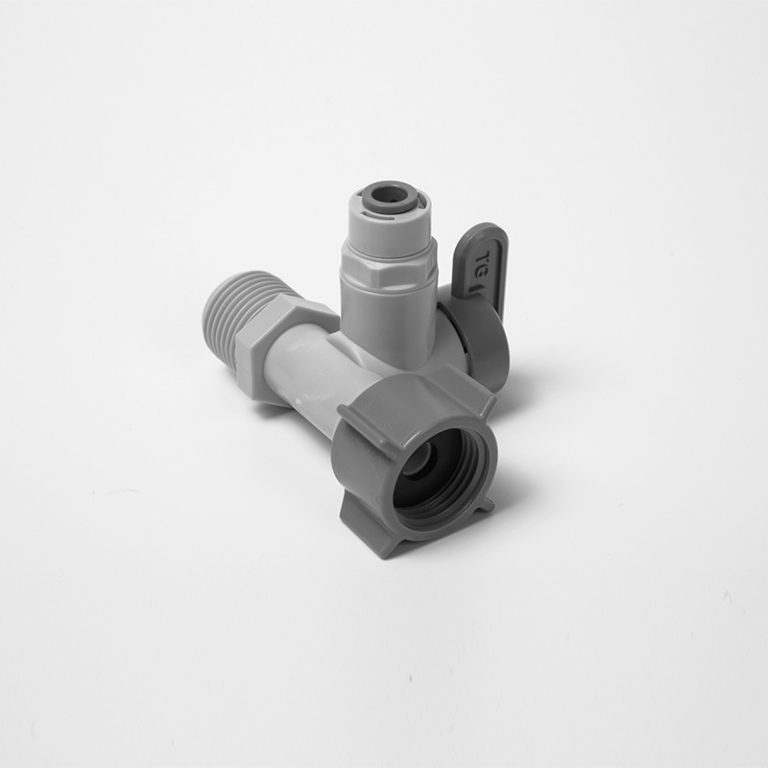Table of Contents
Pros and Cons of Using PVC Pipes for Plumbing
When it comes to plumbing, choosing the right type of pipe is crucial to ensure the longevity and efficiency of your system. One popular option that many homeowners and contractors turn to is PVC (polyvinyl chloride) pipes. PVC pipes have become a go-to choice for plumbing projects due to their affordability, durability, and ease of installation. However, like any material, PVC pipes come with their own set of pros and cons that should be considered before making a decision.

One of the biggest advantages of using PVC pipes for plumbing is their cost-effectiveness. PVC pipes are significantly cheaper than other materials such as copper or PEX, making them a budget-friendly option for those looking to save money on their plumbing projects. Additionally, PVC pipes are lightweight and easy to work with, which can help reduce installation time and labor costs.
Another benefit of PVC pipes is their durability. PVC is a strong and rigid material that is resistant to corrosion, rust, and chemical damage. This means that PVC pipes are less likely to degrade over time, leading to fewer leaks and repairs down the line. PVC pipes also have a smooth interior surface that helps prevent clogs and buildup, ensuring a consistent flow of water through your plumbing system.
In addition to their affordability and durability, PVC pipes are also known for their versatility. PVC pipes come in a variety of sizes and lengths, making them suitable for a wide range of plumbing applications. Whether you are working on a small residential project or a large commercial installation, PVC pipes can be easily customized to fit your specific needs.
Despite their many advantages, PVC pipes do have some drawbacks that should be taken into consideration. One of the main concerns with PVC pipes is their potential for leaching harmful chemicals into the water supply. PVC pipes can release toxic substances such as lead and phthalates, which can pose a health risk if consumed. To mitigate this risk, it is important to use PVC pipes that are certified for potable water use and to follow proper installation and maintenance guidelines.
Another downside of PVC pipes is their susceptibility to high temperatures. PVC pipes can become brittle and crack when exposed to extreme heat, which can lead to leaks and water damage. This makes PVC pipes less suitable for hot water applications, such as in a water heater or boiler system. If you are considering using PVC pipes for hot water plumbing, it is important to insulate the pipes and take precautions to prevent overheating.
| Model | Tube(a) | Stem(b) |
|---|---|---|
| 1801-A | 1/4 | 1/4 |
| 1801-C | 1/4 | 3/39 |
In conclusion, PVC pipes are a popular choice for plumbing projects due to their affordability, durability, and versatility. However, it is important to weigh the pros and cons of using PVC pipes before making a decision. By understanding the potential risks and limitations of PVC pipes, you can make an informed choice that will ensure the long-term success of your plumbing system.
Benefits of Using PEX Pipes Over PVC for Plumbing
When it comes to choosing the best plastic plumbing pipe for your home, there are a few options to consider. Two popular choices are PEX (cross-linked polyethylene) and PVC (polyvinyl chloride) pipes. While both have their own advantages and disadvantages, many plumbers and homeowners are leaning towards PEX pipes for a variety of reasons.
One of the main benefits of using PEX pipes over PVC is their flexibility. PEX pipes are much more flexible than PVC pipes, making them easier to install in tight spaces and around corners. This flexibility also reduces the need for fittings and connectors, which can help to minimize the risk of leaks and other plumbing issues down the line.

Another advantage of PEX pipes is their resistance to freezing temperatures. Unlike PVC pipes, which can become brittle and crack in cold weather, PEX pipes are able to expand and contract without breaking. This makes them a great choice for homes in colder climates where freezing pipes are a common concern.
In addition to their flexibility and freeze resistance, PEX pipes are also more resistant to corrosion and chemical damage than PVC pipes. This means that they are less likely to develop leaks or other issues over time, which can save homeowners money on repairs and replacements in the long run.
PEX pipes are also known for their durability and longevity. While PVC pipes can become brittle and degrade over time, PEX pipes are designed to last for decades without needing to be replaced. This can help to reduce maintenance costs and ensure that your plumbing system remains in good working condition for years to come.
One of the main drawbacks of PEX pipes compared to PVC pipes is their higher cost. PEX pipes are typically more expensive than PVC pipes, which can make them less appealing to budget-conscious homeowners. However, many people believe that the benefits of using PEX pipes outweigh the initial cost, as they can help to prevent costly repairs and replacements in the future.
In conclusion, there are many benefits to using PEX pipes over PVC for plumbing. Their flexibility, freeze resistance, corrosion resistance, durability, and longevity make them a popular choice among homeowners and plumbers alike. While they may be more expensive upfront, the long-term savings and peace of mind that come with using PEX pipes are well worth the investment. If you are considering upgrading your plumbing system or making repairs, it may be worth looking into PEX pipes as a reliable and efficient option for your home.
| Model | Tube(a) | Stem(b) |
|---|---|---|
| 1801-A | 1/4 | 1/4 |
| 1801-C | 1/4 | 3/14 |







